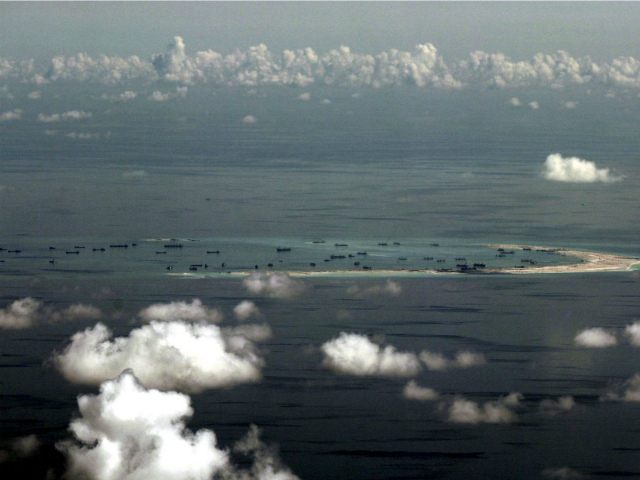A private group in Taiwan has filed to intervene in a case at the Permanent Court of Arbitration at The Hague, asserting that at least one territory in the South China Sea belongs to neither the Philippines nor China, but to the “Republic of China,” Taiwan.
The Chinese (Taiwan) Society of International Law has filed an intervening submission, asserting they have a solid argument that Itu Aba, part of the Spratly Islands, does not belong to any of the parties to the case at the Hague, but it is rightfully an island of Taiwan.
The court has accepted the submission and is reviewing the claim, which asserts not only that the territory belongs to Taiwan, but that Itu Aba is legally an island with the right to an exclusive economic zone (EEZ) within it maritime borders. The Philippines is arguing that Itu Aba is a “rock” and therefore not entitled to such privileges in the South China Sea. Vietnam also claims Itu Aba as its own.
The Chinese government claims most of the South China Sea, including the Spratly and Paracel Islands. The territory China has unilaterally taken over includes areas within the borders of the Philippines, Vietnam, Taiwan, Brunei, and Malaysia, and borders Natuna Island, an Indonesian territory. Among the contested areas of the Spratlys are Fiery Cross Reef and Johnson South Reef, home to a number of new Chinese constructions its neighbors say are illegal.
China does not consider Taiwan a sovereign nation and considers all territory belonging to Taiwan to be under the control of Beijing. Some fear that the Hague court asserting Itu Aba is an island will be used by China to claim its rights over the region. “If even one of the Spratlys is found to be an island entitled to a 200 mile EEZ, China will be able to plausibly claim that it owns that feature and the 200 mile entitlement that comes with it, a claim that, while not as large as the nine-dash line, would still be quite substantial,” the magazine The Diplomat asserts.
To do so, however, China would have to acknowledge the Hague case at all, which it has refused to do. The Chinese Foreign Ministry has asserted that it will ignore any verdict out of the Permanent Court of Arbitration, even a favorable one. Its continued construction of artificial islands on reefs in the region — and military complexes on the artificial islands — stands as a testament to their refusal to acknowledge the case.
The Chinese Foreign Ministry did give Reuters a statement on Taiwan’s submission to the court, however, offering some veiled support for the move. “Chinese people on both sides of the Taiwan Strait all have a responsibility to jointly protect the ancestral property of the Chinese people,” the statement read, once again acknowledging Taiwan only as a province of China.
It has made similar supportive moves towards Taiwan on this issue, while ignoring that Taiwan is seeking to control its part of the Spratly Islands for Taipei and not Beijing. In January, President Ma Ying-jeou visited Itu Aba to bring attention to its status as a rightful island internationally, not a rock or other formation not eligible for an EEZ. “Many of his policies don’t live up to the expectations of the Chinese mainland, but his unwavering stance on the South China Sea regardless of Washington’s pressurizing is worth praise,” Chinese state-run Global Times said of the excursion. The government of the United States called the visit “very unhelpful.”
Taiwanese President-elect Tsai Ing-wen turned down a chance to visit with Ma, a sign that she is not interested in behavior that may be used by Beijing to bolster its claims in the region. The Global Times column made note of “Tsai’s different stance on the issue,” as well. Tsai will assume the office of the presidency on May 20.
In March, the Taiwanese government made a final international appeal to assert its claims by bringing a group of reporters to Itu Aba, showing them the facilities on the island as proof that it is a habitable territory. Taipei asserted that the presence of a local population, agriculture, and constructions should solidify its international legal status and allow it to be part of the debate over which nations control which territories in the region.

COMMENTS
Please let us know if you're having issues with commenting.